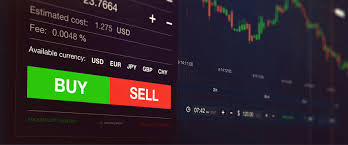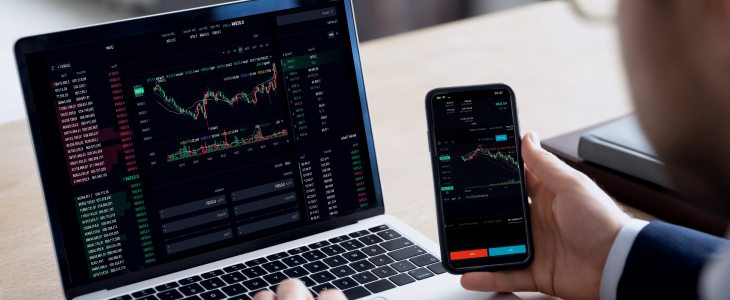Forex Trading vs Stock Trading Which is Right for You 1806591172

Forex Trading vs Stock Trading: Which is Right for You?
When it comes to entering the financial markets, aspiring traders often face a significant choice: should they delve into Forex trading or stock trading? Both avenues offer unique opportunities and challenges, and understanding their core differences is vital for anyone looking to succeed in the trading world. In this article, we will explore these two investment avenues in detail, examining their characteristics, benefits, and shortcomings, to help you choose the best path for your trading journey. For a great start in trading, check out the forex trading vs stock trading Top Trading Platforms.
Understanding Forex Trading
Forex, or foreign exchange, trading is the act of exchanging currencies on a global market. Unlike traditional stock exchanges, the Forex market operates 24 hours a day, five days a week, allowing traders to engage in currency trading at any time. The primary goal in Forex trading is to profit from the fluctuations in currency values. Traders buy or sell currency pairs, such as EUR/USD or GBP/JPY, with the expectation that the value of one currency will rise or fall against another.
Key Features of Forex Trading
- Market Accessibility: The Forex market is decentralized and highly accessible, meaning traders can enter and exit trades through numerous platforms, including brokers and online trading platforms.
- Leverage: Forex trading typically allows for high leverage ratios, often up to 100:1 or even more, enabling traders to control large amounts of capital with a relatively small investment.
- Liquidity: The Forex market is the most liquid financial market globally, with trillions of dollars traded daily, ensuring that traders can easily enter or exit positions without significant price impact.
Advantages of Forex Trading
One of the main advantages of Forex trading is its high liquidity, which offers tight spreads and various trading opportunities throughout the day. The availability of leverage can amplify profits, making Forex trading an attractive option for those looking to maximize their capital. Furthermore, the flexibility of trading hours allows for trading strategies to be executed at convenient times for individuals with varying schedules.
Challenges of Forex Trading
Despite its many benefits, Forex trading is not without risks. High leverage can also amplify losses, leading to significant financial setbacks. Beginners may find the Forex market complex due to the various factors influencing currency prices, including geopolitical events, economic indicators, and market sentiment. Moreover, the decentralized nature of the Forex market can pose challenges regarding regulatory oversight.
Understanding Stock Trading
Stock trading, on the other hand, involves buying and selling shares of companies on stock exchanges. Investors purchase stocks with the hope that the company’s value will increase over time, allowing them to profit from selling their shares at a higher price. Stock trading typically involves trading individual companies, ETFs, or indices, and market sessions are limited to specific hours when stock exchanges are open.
Key Features of Stock Trading
- Market Hours: Stock trading is limited to specific hours during which stock exchanges operate, often leading to less flexibility compared to Forex trading.
- Ownership: When you buy shares of a company, you gain ownership in that company, including voting rights or dividends, depending on the type of stock.
- Variety of Securities: The stock market offers access to a wide range of companies across various sectors, providing opportunities for diversification.
Advantages of Stock Trading

Stock trading allows investors to participate in the ownership of a company, potentially benefiting from dividends and capital gains. The stock market is also well-regulated, providing investors with a sense of security regarding the transparency and accountability of the companies they invest in. Additionally, stock trading often has lower volatility compared to Forex trading, making it appealing to risk-averse investors.
Challenges of Stock Trading
One of the main challenges of stock trading is the limited trading hours compared to the Forex market, which may limit opportunities for traders who prefer to operate outside regular hours. Market volatility can also lead to sudden price fluctuations, presenting risks for buyers and sellers alike. Finally, understanding the intricacies of individual companies, industries, and market trends can be complex for novice investors.
Comparing Forex and Stock Trading
Directly comparing Forex and stock trading reveals various benefits and drawbacks inherent to each trading method. Traders need to assess their risk tolerance, time availability, and strategic preferences before committing to one avenue over the other.
Risk and Volatility
Forex trading tends to be more volatile than stock trading, especially during major economic announcements or geopolitical events. However, the high liquidity in Forex can sometimes mitigate these risks, enabling traders to enter and exit positions quickly. Stocks may also experience significant volatility, but the fluctuations are often tied to company-specific news or broader market sentiments.
Trading Styles
Traders in Forex often employ scalping or day trading strategies due to the market’s 24-hour nature. These styles take advantage of rapid price movements for short-term profits. In contrast, stock traders may focus on longer-term investment strategies, such as value or growth investing, although day trading stocks is also common.
Cost of Trading
Costs associated with trading, such as spreads, commissions, and overnight fees, vary between Forex and stock trading. Forex trading typically involves lower transaction costs, but the high leverage can lead to significant losses if not managed properly. Stock trading generally incurs higher brokerage commissions, especially for fractional shares or penny stocks.
Conclusion: Which is Right for You?
In conclusion, choosing between Forex trading and stock trading ultimately depends on individual preferences, risk tolerance, and investment goals. Forex trading suits those looking for flexibility and the ability to trade around the clock, while stock trading may appeal to those who prefer a more regulated environment with potential for ownership and dividends. By understanding the key differences, advantages, and challenges of each market, traders can make informed decisions tailored to their unique circumstances and financial objectives.